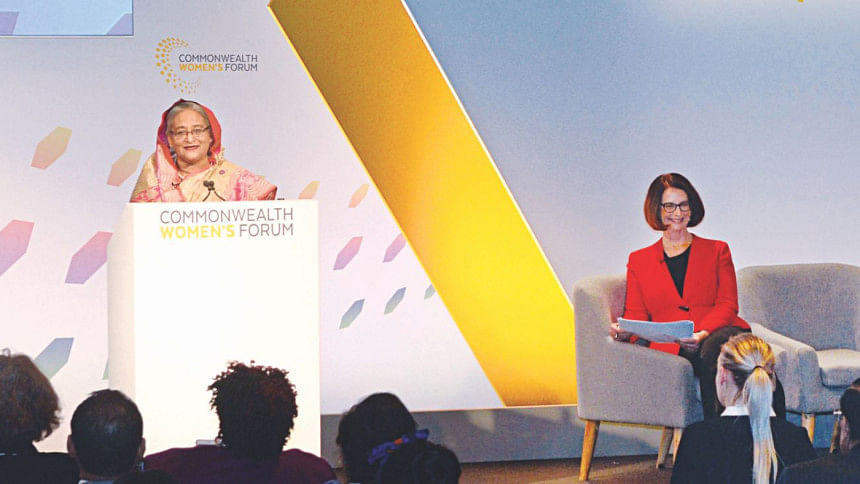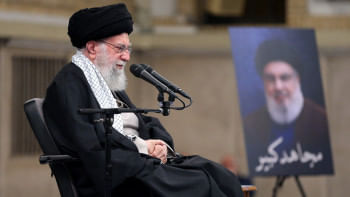Rohingya Crisis: Dhaka wants sustainable solution: PM

Prime Minister Sheikh Hasina yesterday said Bangladesh wanted a peaceful, sustainable and an early solution to the Rohingya crisis as the country was now bearing the entire brunt of the recent exodus of persecuted Myanmar nationals.
"Some 1.1 million Rohingyas are now in Bangladesh. We've given them shelter on humanitarian grounds. Many world leaders visited Rohingya camps to see their plight,” she said.
The prime minister was delivering her speech at an event titled “Bangladesh's Development Story: Policies, Progresses and Prospects” at Overseas Development Institute (ODI) in London as the keynote speaker.
She said although Bangladesh had achieved successes in various sectors, this did not mean that there were no further challenges. "We face the challenge of climate change although we're the least polluter," she said, adding that the rise in sea level would induce displacement of millions in the country.
"It's a shared responsibility of the global community to protect our planet, our biodiversity and our climate," the prime minister said, adding that Bangladesh was in the process of developing “Bangladesh Delta Plan 2100” to mitigate and manage the climate change impacts.
About terrorism and militancy, the prime minister said Bangladesh was following a “zero-tolerance” policy for the menace.
ON WOMAN EMPOWERMENT
At another event, Hasina stressed the need for building a future where world peace and women empowerment would remain the cornerstone to create a peaceful society free from poverty and discrimination.
She was delivering her keynote speech at a discussion on “Educate to empower: Making equitable and quality primary and secondary education a reality for girls across the Commonwealth”.
“We want to build a future where world peace and women empowerment remain the cornerstone to create a society free from poverty, discrimination and conflict,” she said
The Commonwealth Women's Forum organised the programme in London's Queen Elizabeth II Conference Centre.
Hasina said education for all would remain Bangladesh's prime objective towards achieving the overarching policy visions of inclusive development with the guiding norm of sustainable development goals.
The Bangladesh government attaches importance to girls' education which helps eliminate various social hurdles and it has also enhanced the living standards of the rural women, she said.
“Besides, incidences of exploitation and domestic abuses have also gone down substantially following the development in female education sector.”
Hasina said the National Education Policy 2010 laid emphasis on education that promotes economic productivity and social and humane qualities. “Without proper education, it's not possible to empower women.”
For empowering women politically, the government has undertaken various measures like increasing reserved seats in parliament and keeping aside 30 percent seats for women in various local government bodies, she mentioned.
The PM said Bangladesh was the only country in the world where the Speaker, the leader and deputy leader of the House and the leader of the opposition were women.
She elaborated steps, including distribution of free textbooks, providing stipends to students, development of training infrastructures for teachers, women's participation in income-generating activities and creating opportunities for them in the job market.
She said Bangladesh had now reached a new trajectory in its development journey as its GDP was projected to grow at 7.65 percent in the current fiscal year.
Hasina arrived in London early yesterday on a six-day official visit to the UK to join the 25th Commonwealth Heads of Government Meeting.
British Prime Minister Theresa May's representative Neil Holland and Bangladesh High Commissioner to the UK Nazmul Qaunine received the premier at the airport.
From the airport, she was taken to Claridge's Hotel Limited where she will be staying during her visit to the UK.

 For all latest news, follow The Daily Star's Google News channel.
For all latest news, follow The Daily Star's Google News channel. 








Comments